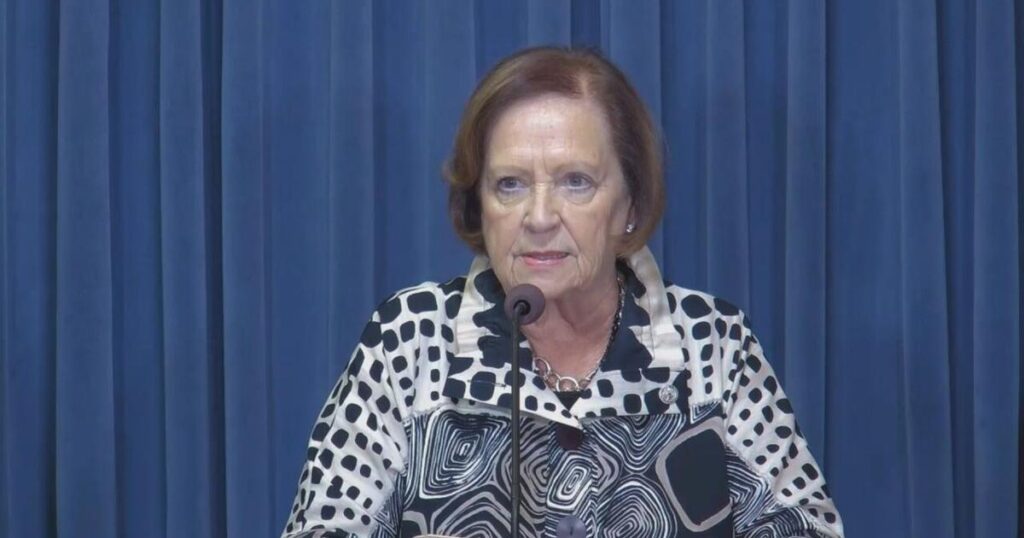(The Center Square) – Illinois legislators concerned with growing taxpayer costs have filed legislation they hope will put an end to the state’s migrant sanctuary status.
Chicago and other regions of Illinois have seen nearly 20,000 noncitizens arrive from the southern border over the past 13 months and have faced financial issues in caring for them.
State Rep. Norine Hammond, R-Macomb, this week, while laying out her goals for the fall veto session, introduced a measure aimed at limiting the influx.
“One of the biggest problems we are facing right now, both from a budgetary and a humanity perspective, is the ongoing crisis at our southern border and the influx of undocumented immigrants into Illinois,” Hammond said. “Yesterday, we filed House Bill 4187 to repeal the Illinois Trust Act and end our status as a sanctuary state.”

Illinois state Rep. Norine Hammond, R-Macomb, during a news conference
BlueRoomStream
Illinois law prohibits state and local law enforcement from working with federal immigration authorities to enforce immigration law, if that’s the only reason for enforcement against someone.
Gov. J.B. Pritzker was asked about possibly repealing the Trust Act and said his focus is on getting the non-citizen arrivals the things they need.
“We are absolutely focused on assisting the city and making sure we are doing everything we can for new brick and mortar shelters that we can provide,” Pritzker said.

Illinois Gov. J.B. Pritzker
Facebook / Governor JB Pritzker
Hammond said the reason for her measure is to address the out-of-control costs involved in caring for the arrivals.
“The migrant crisis is likely to cost Chicago taxpayers $361 million. That’s just in 2023,” Hammond said. “Meanwhile, the governor’s office has said the state expects to spend on the migrant response a total of $400 million in the fiscal year 2023.”
Illinois is already set to pause a program intended to provide taxpayer-subsidized health care to the influx of non-citizen arrivals. The program is already up to $831.6 million in projected taxpayer costs.
Pritzker said supporting these people has nothing to do with sanctuary status.
“Sanctuary status has to do with undocumented immigrants who are here,” Pritzker said. “Not people who are asylum seekers who are in a whole different category.”




